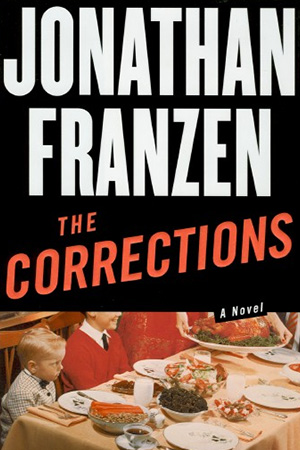Three in the afternoon was a time of danger in these gerontocratic suburbs of St. Jude. Alfred had awakened in the great blue chair in which he’d been sleeping since lunch. He’d had his nap and there would be no local news until five o’clock. Two empty hours were a sinus in which infections bred. He struggled to his feet and stood by the Ping-Pong table, listening in vain for Enid.
Ringing throughout the house was an alarm bell that no one but Alfred and Enid could hear directly. It was the alarm bell of anxiety. It was like one of those big cast-iron dishes with an electric clapper that send schoolchildren into the street in fire drills. By now it had been ringing for so many hours that the Lamberts no longer heard the message of “bell ringing” but, as with any sound that continues for so long that you have the leisure to learn its component sounds (as with any word you stare at until it resolves itself into a string of dead letters), instead heard a clapper rapidly striking a metallic resonator, not a pure tone but a granular sequence of percussions with a keening overlay of overtones; ringing for so many days that it simply blended into the background except at certain early-morning hours when one or the other of them awoke in a sweat and realized that a bell had been ringing in their heads for as long as they could remember; ringing for so many months that the sound had given way to a kind of metasound whose rise and fall was not the beating of compression waves but the much, much slower waxing and waning of their consciousness of the sound. Which consciousness was particularly acute when the weather itself was in an anxious mood. Then Enid and Alfred—she on her knees in the dining room opening drawers, he in the basement surveying the disastrous Ping-Pong table—each felt near to exploding with anxiety.
The anxiety of coupons, in a drawer containing candles in designer autumn colors. The coupons were bundled in a rubber band, and Enid was realizing that their expiration dates (often jauntily circled in red by the manufacturer) lay months and even years in the past: that these hundred-odd coupons, whose total face value exceeded sixty dollars (potentially one hundred twenty dollars at the Chiltsville supermarket that doubled coupons), had all gone bad. Tilex, sixty cents off. Excedrin PM, a dollar off. The dates were not even close. The dates were historical. The alarm bell had been ringing for years.
